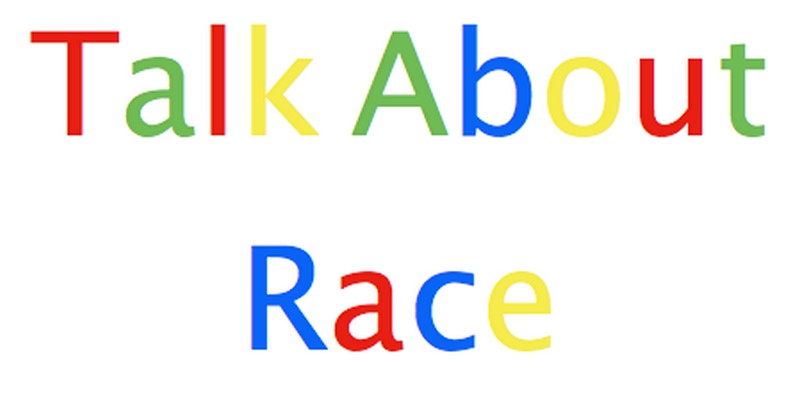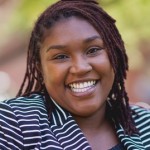 Back in March, Torrey prof Jamie Campbell and her husband Andrew posted here at Scriptorium about their experiences and understandings of racial identity. Their stated goal was to help get past a set of platitudes about race that are over-used, simplistic, and ambiguous: “We’re all the same on the inside; everybody is equal; I am color-blind; I don’t see race as an issue.” Andrew described how he was raised on such mantras, and entered adult life with feelings and attitudes that conflicted with his own experience and left him “immobilized …in conversations about race and ethnicity,” creating “space for resentment and participation in personal and institutional racism.” Jamie described her desire to help her white students begin to develop categories that they could use to speak and think more adequately about their white racial identity. These students come to her “asking for space to process what is it to be “White” in a world where more boxes exist to be checked that identify others.” And both of them had much to say about how parents should talk about race with their kids –and how different those conversations are depending on the races and social contexts of the families.
Back in March, Torrey prof Jamie Campbell and her husband Andrew posted here at Scriptorium about their experiences and understandings of racial identity. Their stated goal was to help get past a set of platitudes about race that are over-used, simplistic, and ambiguous: “We’re all the same on the inside; everybody is equal; I am color-blind; I don’t see race as an issue.” Andrew described how he was raised on such mantras, and entered adult life with feelings and attitudes that conflicted with his own experience and left him “immobilized …in conversations about race and ethnicity,” creating “space for resentment and participation in personal and institutional racism.” Jamie described her desire to help her white students begin to develop categories that they could use to speak and think more adequately about their white racial identity. These students come to her “asking for space to process what is it to be “White” in a world where more boxes exist to be checked that identify others.” And both of them had much to say about how parents should talk about race with their kids –and how different those conversations are depending on the races and social contexts of the families.
Those posts were, among other things, public calls for continued dialogue, so I wanted to engage with what Jamie and Andrew were saying, and to do so here at Scriptorium. Since we work in the same program and have offices in the same building, you’d think we would have already gotten together and talked face to face sometime this month. But you’d be wrong. Academic semesters, they’re busy. So we thought we’d hash things out here online.

Fred: I admit that I was somewhat taken aback by the refrain in your post, Jamie: “Everyone is not equal.” My instinct was to disagree, because after all, isn’t the sentence “everyone is not equal” the kind of thing racists believe? But instead of piping up, I listened more, by which I mean I re-read the post and tried to get ahold of it by the right end.
When people teach their kids “everyone is equal,” I think they mean “everyone deserves to be treated equally” or “no group is inferior to others.” But as a slogan, I now see that it could also be taken to mean “everyone is actually being treated equally right now,” or “the playing field is perfectly level.” That’s apparently how it rings in the ears of a large group of white people, especially those who have grown up with a self-concept that lacks any race consciousness. I’m thinking of the kind of experience of young white people who are conditioned to think of themselves as belonging to an uncomplicated majority, or even to think of people like them as “normal” over against other groups who are, wow, identifiably ethnic.
 I was a public school kid in southern California in the 70s, and in a setting of great diversity I never had a sense of being in the majority at school (I would experience that later, in Kentucky). But I did have the sense that my family and I were sort of the default version of humanity, the regular version. African American, Latino, and Asian kids in my class struck me as being, somehow, humans with race added to them. But as for me and my house, we were the standard issue. I’d like to interview my second grade self. I’m not sure what I would have said if you had asked me whether I thought it was good or bad to be “regular.” I think I assumed everybody felt that way about themselves. Looking back, I can recognize that I was benefiting from one of the invisible elements of white privilege: the freedom to ignore race, to have it never pressed on my attention, to treat it as something one could think about if one chose to.
I was a public school kid in southern California in the 70s, and in a setting of great diversity I never had a sense of being in the majority at school (I would experience that later, in Kentucky). But I did have the sense that my family and I were sort of the default version of humanity, the regular version. African American, Latino, and Asian kids in my class struck me as being, somehow, humans with race added to them. But as for me and my house, we were the standard issue. I’d like to interview my second grade self. I’m not sure what I would have said if you had asked me whether I thought it was good or bad to be “regular.” I think I assumed everybody felt that way about themselves. Looking back, I can recognize that I was benefiting from one of the invisible elements of white privilege: the freedom to ignore race, to have it never pressed on my attention, to treat it as something one could think about if one chose to.
The reason I’m musing on this is not just to re-live my childhood or to review my earliest notions of race, but to try to understand why the sentence “everyone is equal” can mis-fire so significantly. If I think race is something other people have, and I tell myself “everyone is equal,” then it could serve as a way of ignoring the very different experiences people are having.
Am I on the right track here?

Jamie: I love that you highlighted the idea of “otherness” versus “normality.”
When you pair explicit, albeit subconscious, categories like “other” and “normal” to people, to groups of people, you immediately create hierarchies to help you navigate those categories. Someone has to come out on top and someone has to come out on bottom. In other words, the very existence of these categories, especially when they are not addressed early and often in our lives, eliminate the possibility of “everybody is equal” being true.
When those internal hierarchies manifest in the real world – coupled with power, privilege, and the passage of time – you have a social reality that begins to mimic the ideological reality. And human beings are very good at lying to themselves.
So even though a young human being knows that “other” and “normal” aren’t equal, just like -2 and 4 aren’t equal, experience and repeated denial of the thing they know intuitively to be true inverts their understanding of reality. Think about, little Fred understood that there was something different happening between him and the black, asian, and latino kids in his class, he just didn’t have the language or the space to think and talk about this difference. Or even to know it was worth thinking and talking about – that, as you pointed out is privilege, in this case racial privilege.
People get all prickly when the idea of privilege comes to the table, and maybe it is because the term has been overused in some circles – privilege is not about a lack of hardship or even a lack of personal struggle, but speaks more broadly to the benefit of a series of characteristics that one has that positions them more advantageously in society.
For example, I’m educationally privileged – I had no control over being born into a family that valued education so highly that they would sacrifice other social comforts to give me access to the best education possible. But I definitely have benefited from it. This educational privilege also shaped my idea of normal – I assumed EVERYONE grew up from infancy surrounded by books, being pushed towards college and grad school (even over marriage and family), and being given the space to educationally explore. Imagine my surprise and shock when I realized that there are people who never have books in their homes (gasp!), or when I realized that some people attended class with 35 other students (I never had a class with more than 10 people in it all the way through my high school education). My first reaction to people with different educational experiences than mine was to judge – well, if they had wanted books instead of video games… or if they had wanted to take advanced courses… But all of this judgment serves the purpose of validating my sense of self and of keeping my sense of self superior to others. As much as I wanted to believe my ending up at Georgetown Law Center while others didn’t was because of my hard work and dedication as a student (and that mattered), the truth of the matter is I was at an educational advantage. I was privileged.
It is the same with racial privilege (or gender, class, etc.). The privilege gives an edge, an opportunity, and it determines the categories of “other” and “normal” in terms of how we interact with others and organize our world.
I guess what I’m wanting to highlight is there is no “everyone is equal” — in our real lives, we separate, categorize, and “other-ize” in order to survive this fallen world. But Christ calls us to live, not just survive.

Fred: Your last sentence there takes a hopeful turn, Jamie, and I am sorely tempted to latch onto it with both hands and not let go until it gives me a happy ending. I’m tempted to say, “At all costs, I will have a happy ending to this race discussion, and I will have it soon!” And if you insist on sticking to the line “everyone is not equal,” I’m tempted to say I won’t accept that until you draw up an action list for me to show exactly which steps I should take to make that sentence come untrue.
But I say “tempted” because I think it’s actually not a good impulse that pulls me in that direction. I suspect that my gut-level impulse to grab the wheel and steer toward hope has less to do with the magnetic pull of Christ, and more to do with a desire to make a clean and rapid getaway from race trouble and tension.
Although I wouldn’t classify this as one of my actual beliefs, I do recognize in my emotional comportment an attitude that says race is only a problem if you make it a problem. When somebody brings up race and racism, I often catch myself, nearly subliminally, wondering what is motivating them to stir up trouble. Now that’s weird. Because if you put a quiz in front of me asking if I think all is well in the world, if justice rules in general or with regard to race in particular, if equality is something we experience, I would answer with a resounding no, and I think I could also offer a pretty good theological account of why we shouldn’t be surprised to find injustice built into the human condition. But when racial problems come up, there’s that response again from the soulish equivalent of my central nervous system: a feeling that a perfectly fine status quo has been disturbed by somebody who can’t let well enough alone.
So let me see if I can keep my finger off the hope button for a little longer, because the main thing you and Andrew have been saying is not about hope, but about facing the truth. You both talked about relentless difficulty, structural inequities, and especially about the gap between what we say (“everyone is equal”) and how we live (“I see inequalities everywhere”). As parents of a young child, you also focus on how these tension and gaps ought to be “addressed early and often in our lives” so that our kids grow up with the tools and frameworks that they can use to make sense of things.
When you talk about the things we do to survive in this fallen world, but then say “Christ calls us to live,” I want to rush straight to that calling. And yes, I do intend to get to it, as I’m sure you do. But I’ve learned not to trust my instinct, because it may be arising from a desire to just snap my fingers and declare racism over so I can change the subject. After all, if I sort of wish the topic never came up in the first place, then the next best thing would be for it to go away as soon as possible. It seems like about once a year, American life is rocked by some racial outrage (“Donald Sterling said what?”) followed by some public symbol of retribution or expiation (“Oh good, he was fined and fired, now everything’s good again”). The plot arc supposedly runs “no problems, then problem arises, then problem solved, back to no problem.” But it seems more likely that, as one local pastor tweeted about this latest incident, it “gives face to America’s secret aristocratic racism” that is otherwise present but faceless.
So if I’ve got reasons not to reach instantly for hope, what’s to be done instead? An oracle of Jeremiah says of false prophets, “they have healed the hurt of the daughter of my people slightly, saying, Peace, peace; when there is no peace.” It seems we can’t get anywhere until we face the fact that these are not wounds that can be healed slightly, and that until the Lord himself says otherwise, the message is, “there is no peace.”